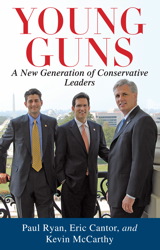The hot book of the moment, Michael Lewis ‘s Big Short , was influenced by a Harvard undergraduate’s thesis . But few people know the bestselling author has followed the footsteps of someone else’s college thesis before, with Moneyball. Lewis’s skill at adapting smart ideas from academia is no doubt one of the reasons the financial writer has had no sophomore slump: A decade or so after publishing his first hit book, Liar’s Poker , the author is on top again with the Big Short , poised to be the latest in a series of more than half a dozen bestsellers. The acknowledgements section of Big Short credits for some measure of inspiration a prize-winning thesis from 24-year-old financial analyst A.K. Barnett-Hart (top pic, left), who while at Harvard analyzed reams of data on instruments at the heart of the financial meltdown, Collateralized Debt Obligations The Wall Street Journal recently suggested that people ” read [her] Harvard thesis instead ” of Lewis’s book, even though Lewis has been the one featured on the Daily Show and in glowing press notices . Although she’s in Lewis’ shadow, Barnett-Hart has already received far greater notice than Gregg Bell (top pic, right), who at the University of California, Berkeley’s Graduate School of Journalism wrote a thesis entitled, “Toeing the Bottom Line: Trying to Compete Within Baseball’s Skewed Financial Structure.” Bell’s research examined how the general manager of the Oakland A’s baseball team, Billy Beane, sifted through other teams’ scrap heaps to find cheap players; relentlessly cut expenses to make the most of his small budget; and had trouble retaining talent under the free-agent system. When Bell was completing his thesis, Lewis was a visiting fellow at his journalism school, sponsored by the Koret Foundation. Bell finished his thesis during his second and final year, ending in 2000, only several months after Lewis had begun work at Berkeley. Not long after Bell’s thesis was turned in, Lewis was hanging out on the A’s beat, doing the reporting for Moneyball. Published in 2003, Moneyball was, like Bell’s thesis, a look at how sifted through other teams’ scrap heaps to find cheap players. The book was later slated (and then un-slated) for adaptation into a movie . According to a person familiar with both works, Lewis definitely went beyond Bell’s analysis, digging into Beane’s methodology and the statistics behind it, and contrasting his recruiting strategy with more traditional approaches to scouting. Bell, now a sports reporter with the Associated Press, had largely avoided a discussion of the stat-geek stuff Lewis delved into. Credit to Lewis, then, for promoting an idea that had been languishing in obscurity of academia. But students from the school gossiped years later over whether Lewis should have given Bell more acknowledgment — i.e., any — for helping to inspire his book, if in fact Bell’s provided such inspiration. Despite the groundwork Bell laid and Lewis’s close proximity to his work, there’s been no confirmation that Lewis got the idea for Moneyball from Bell’s thesis. It remains something of a mystery, even to some of the people involved. Those people include Neil Henry, the professor and thesis advisor who pushed Bell to explore the money side of the A’s. Henry, now dean of the Berkeley journalism school, wrote the following after we asked him about Moneyball : How Michael Lewis happened on the idea, I don’t know. I also don’t know if Gregg knew Lewis while he was a student here, and perhaps had enrolled in one of his courses… I also don’t know if Lewis saw Gregg’s project before he began work on the book. In any event, Gregg’s project was really great. He spent nearly his entire second year with Beane to flesh out the profile, which focused on how a GM for a low budget, small market baseball team manages to keep competitive with other teams. We’ve tried to reach Lewis through a couple of different channels for comment, and not yet heard back. Still, some points in his defense are readily apparent: As his books and must-read magazine articles have demonstrated, Lewis a skilled and prolific writer with a knack for soaking up information from insulated subcultures — sports, Wall Street, his hometown of Berkeley, California — and explaining developments in those subcultures to the world at large. If a writer like that isn’t taking some inspiration from academia, he should be. Also, no one we’ve spoken to denies that Moneyball is a much fuller realization of Billy Beane’s story than Bell’s “Toeing the Bottom Line,” and given the how much longer Lewis had to work on his book than Bell had to work on his thesis, that’s about what you’d expect. Lewis definitely should have acknowledged Bell if Bell’s work was the inspiration for his book, but that doesn’t make Moneyball any less his own success. Big Short , meanwhile, is bigger and better still in comparison with Barnett-Hart’s thesis, even though the latter won the Harvard Hoopes prize and “virtually every thesis honor,” according to the Journal . Barnett-Hart told us, Although there has been some talk about how my thesis inspired Lewis’s book, that is actually far too generous to say. He was being very kind by acknowledging my work and while I did try to share my ideas with him, he already knew most everything I could have told him. I can in no way take credit for anything he did in his great book. I am very happy that he acknowledged me because it has gotten people to read my thesis which I honestly thought no one would ever read. Let this be a lesson to Bell and the smart students who followed him: Have your thesis readily accessible online . That way you can ride the publicity wave if and when a top author expands on some of your ideas. And it’s the sort of move financially savvy authors like Michael Lewis don’t think twice about.
Read this article:
Does Michael Lewis Snatch His Ideas From College Kids? [How Things Work]


























